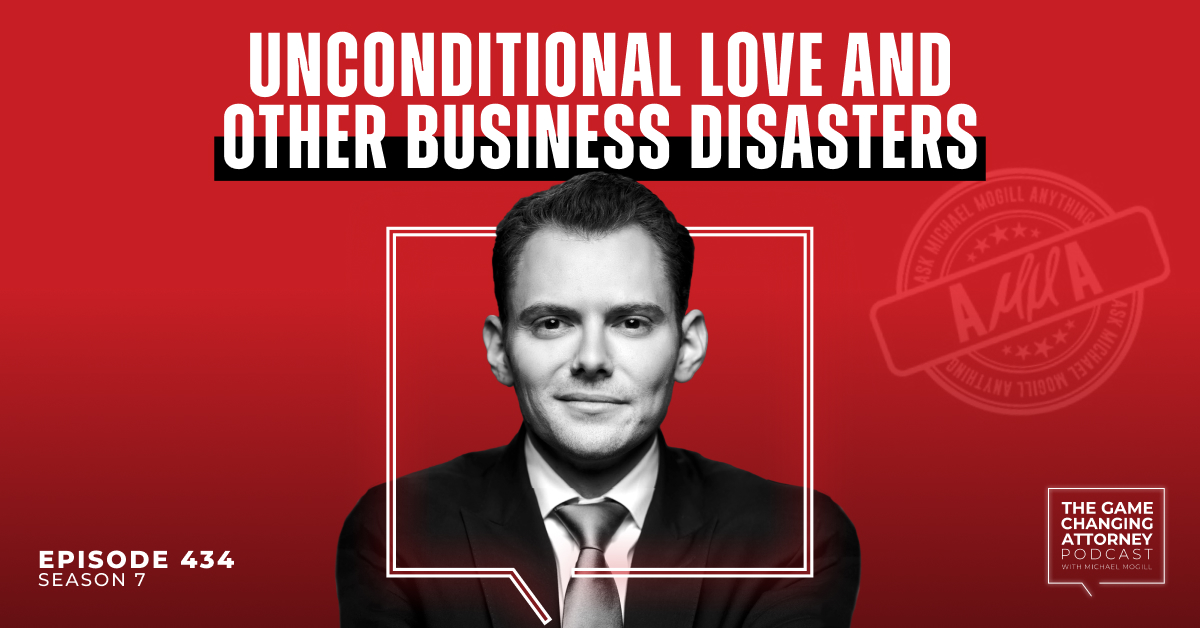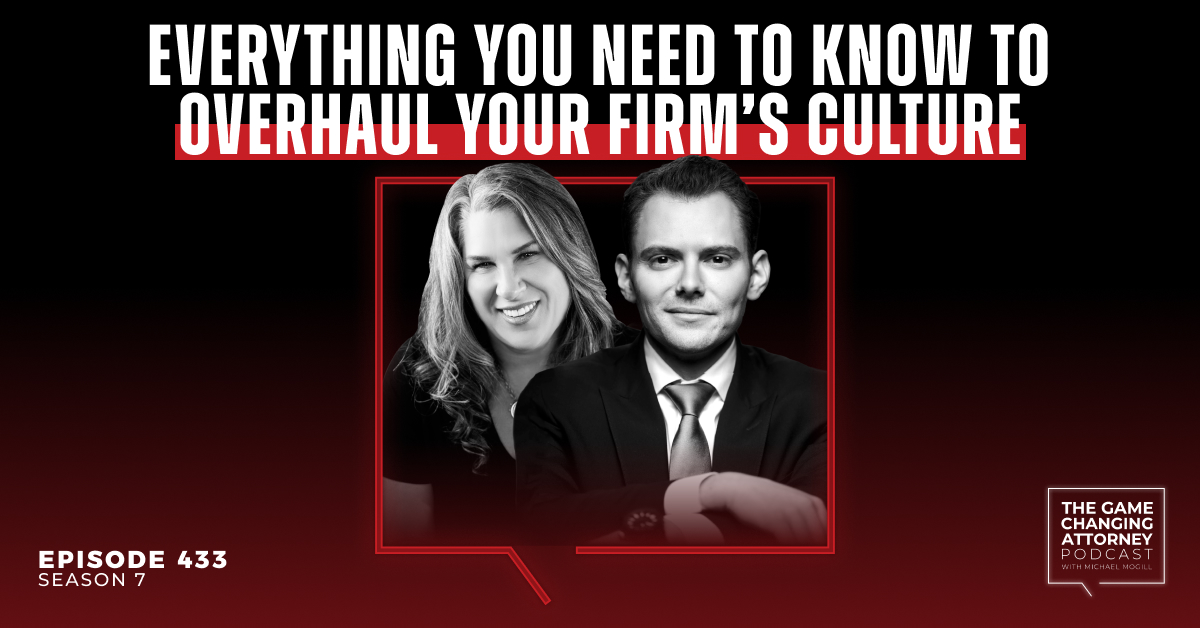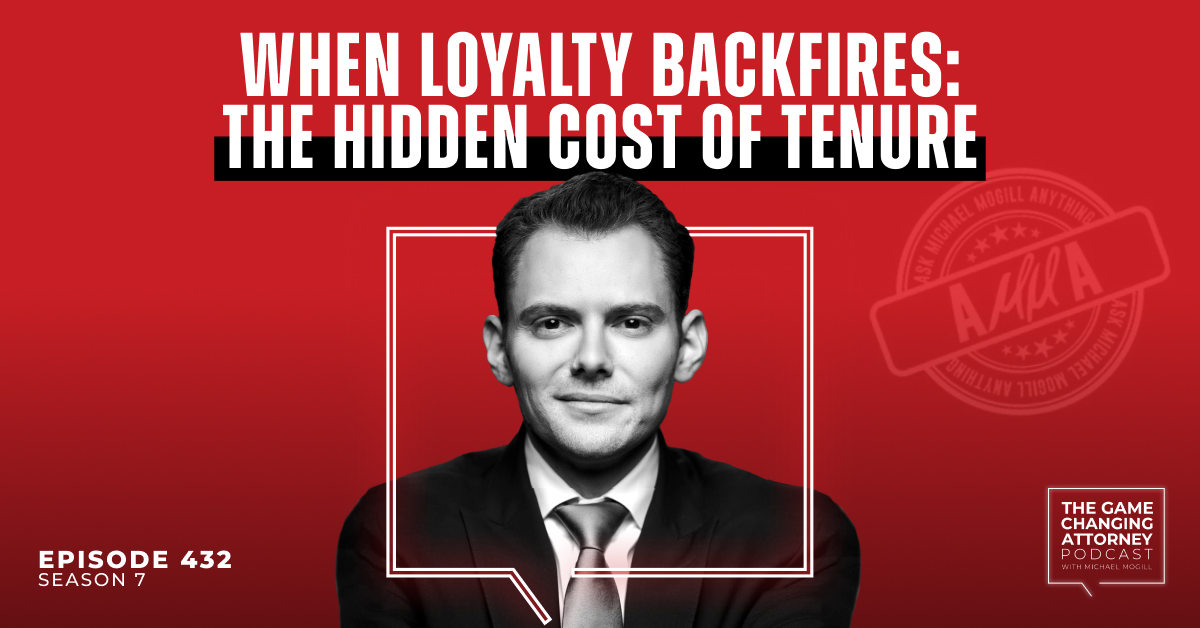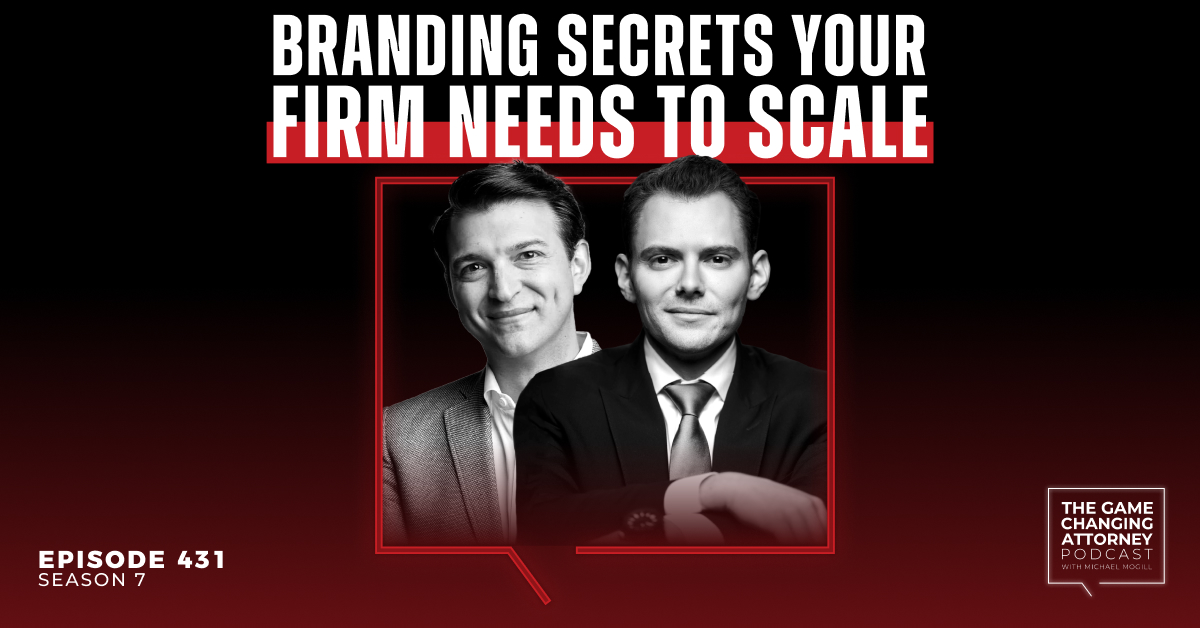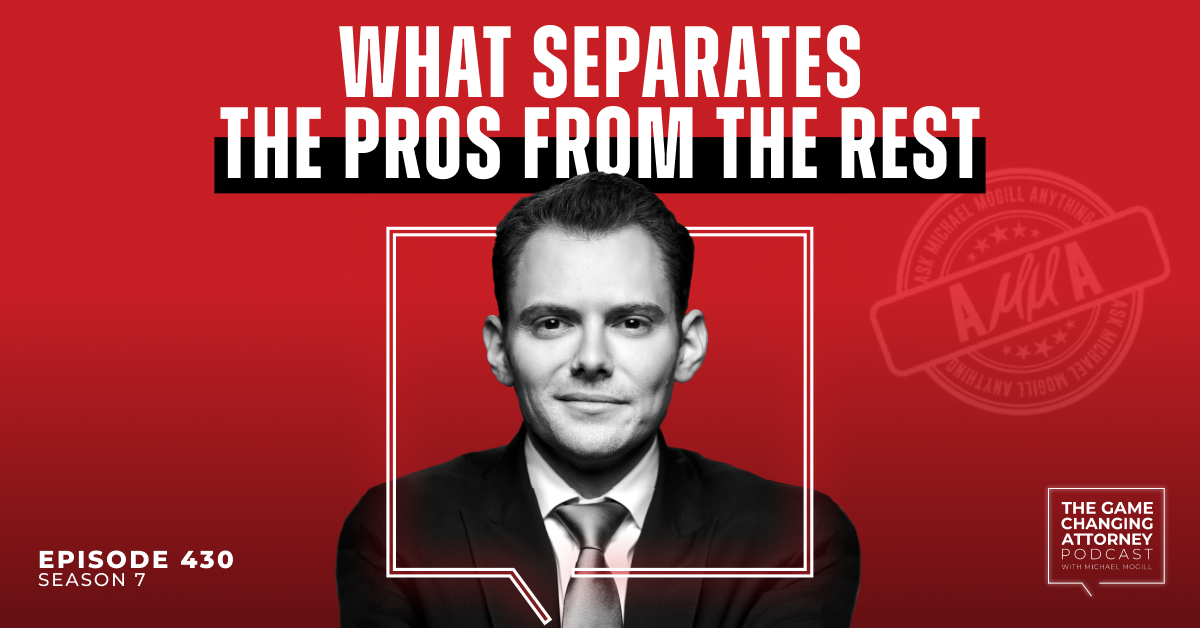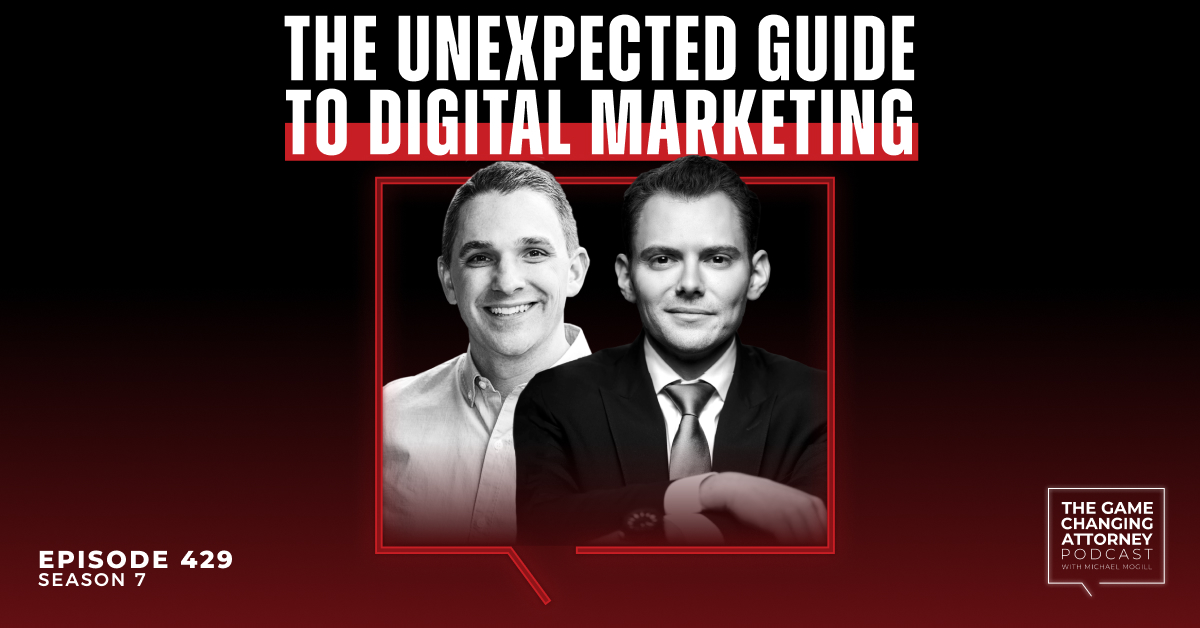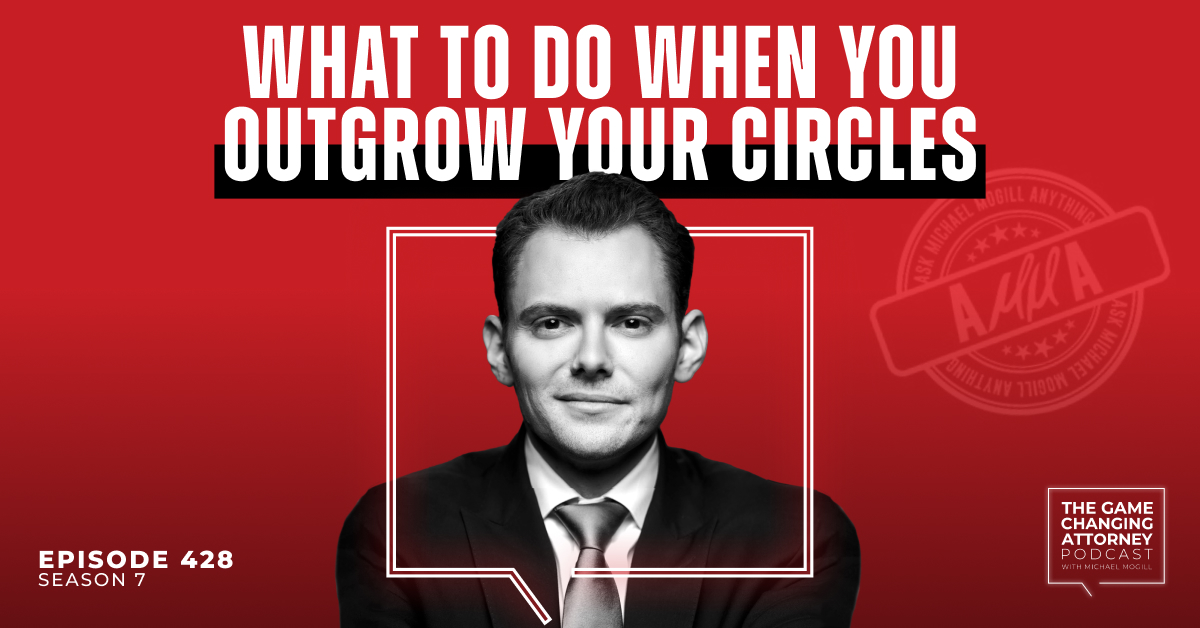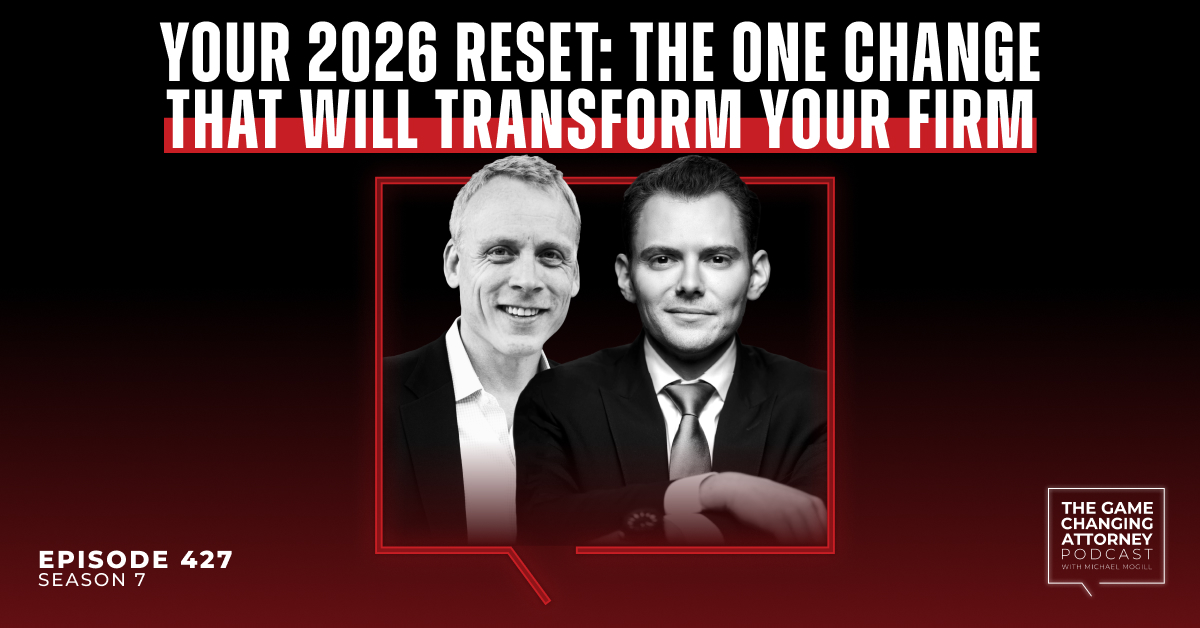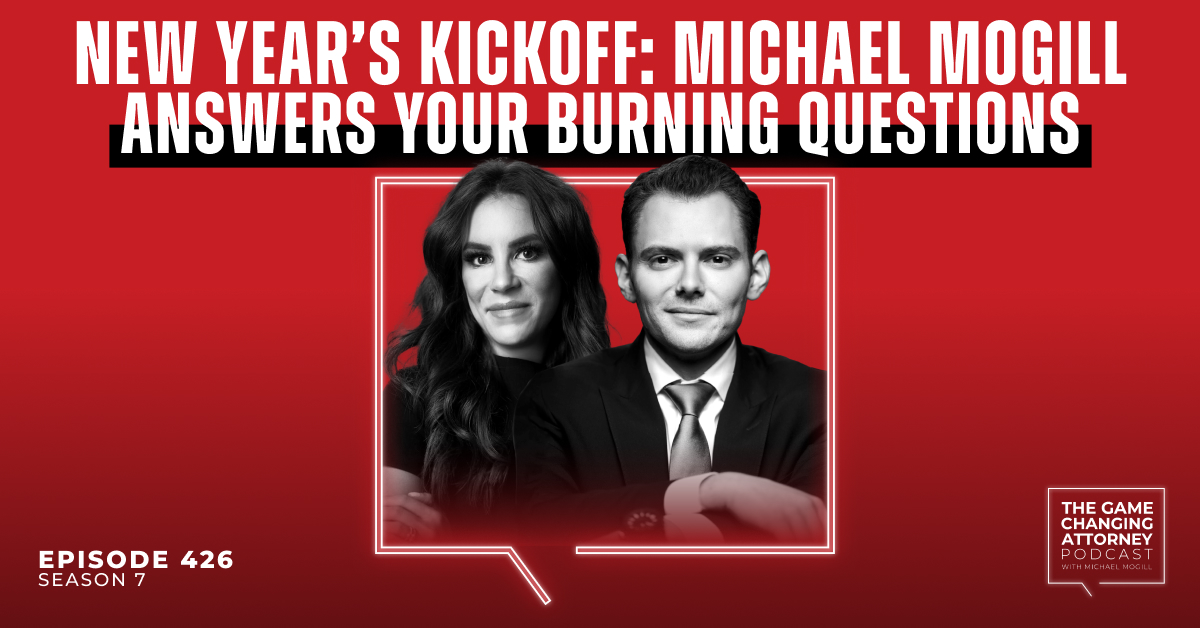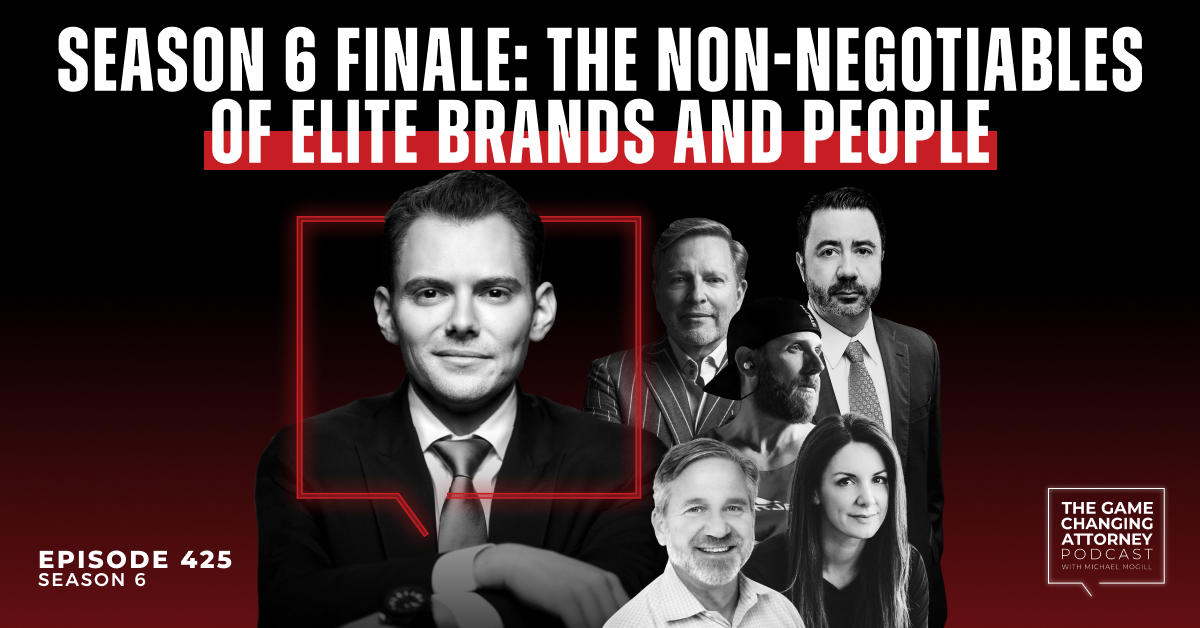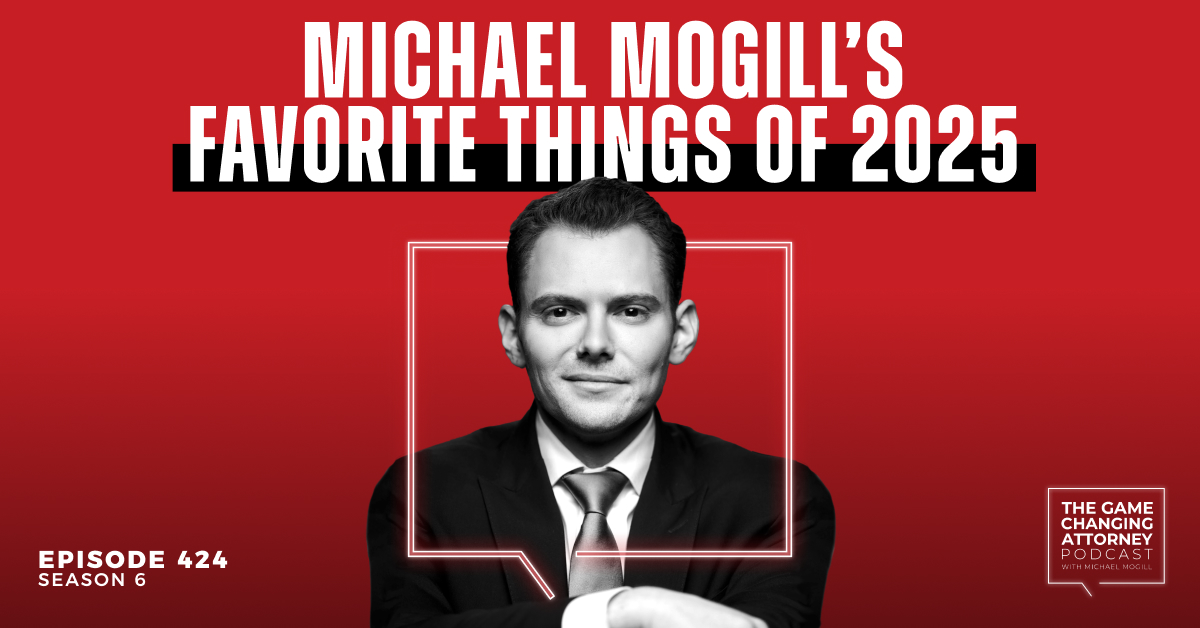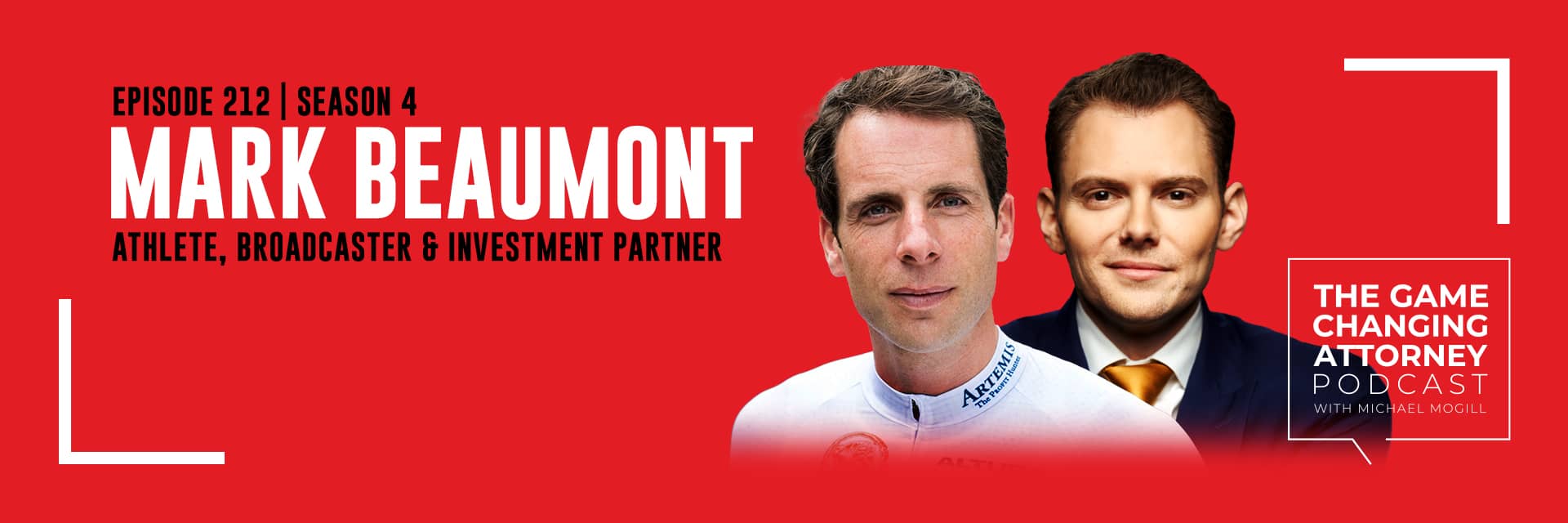
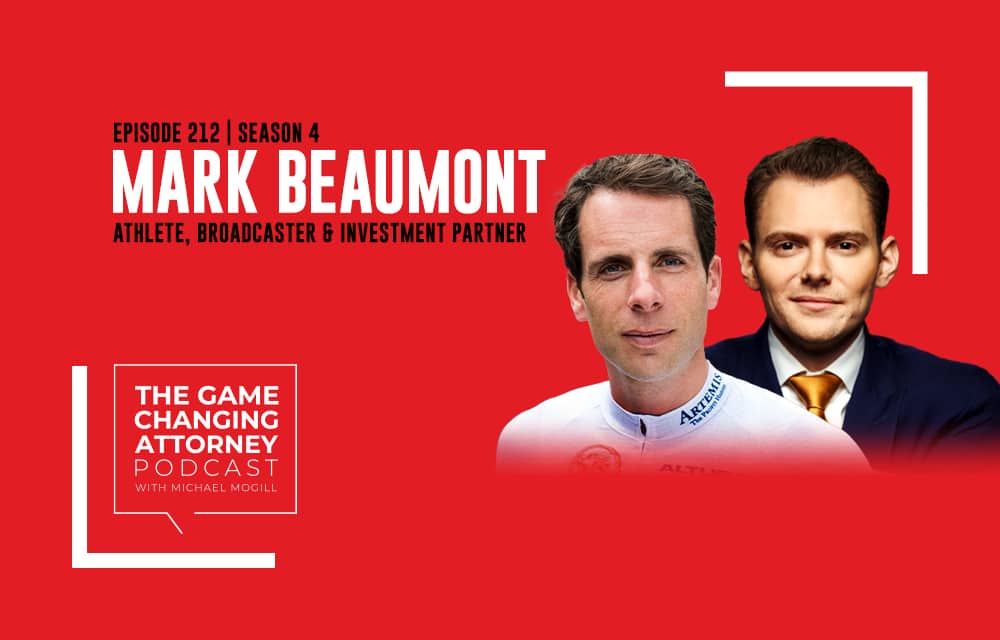
Episode 212 — Mark Beaumont — Around the World in 80 Days: What it Takes to Break a World Record
Mark Beaumont is a Scottish cyclist, investor, broadcaster, and entrepreneur — though none of those titles really do him justice.
Mark is the world record-holder for fastest circumnavigation of the globe on a bicycle, having completed the feat in just 78 days. He has made a career of daring adventures, like cycling the Americas or rowing across the mid-Atlantic. He has also broadcast his expeditions, producing documentaries for Global Cycling Network and the BBC, as well as books that chronicle his journeys.
In this episode of The Game Changing Attorney Podcast, Mark shares:
- What drives him to attempt these incredible feats of athleticism
- The role of media and storytelling in his expeditions
- How he applies the lessons of his adventures to his work as an investor and entrepreneur
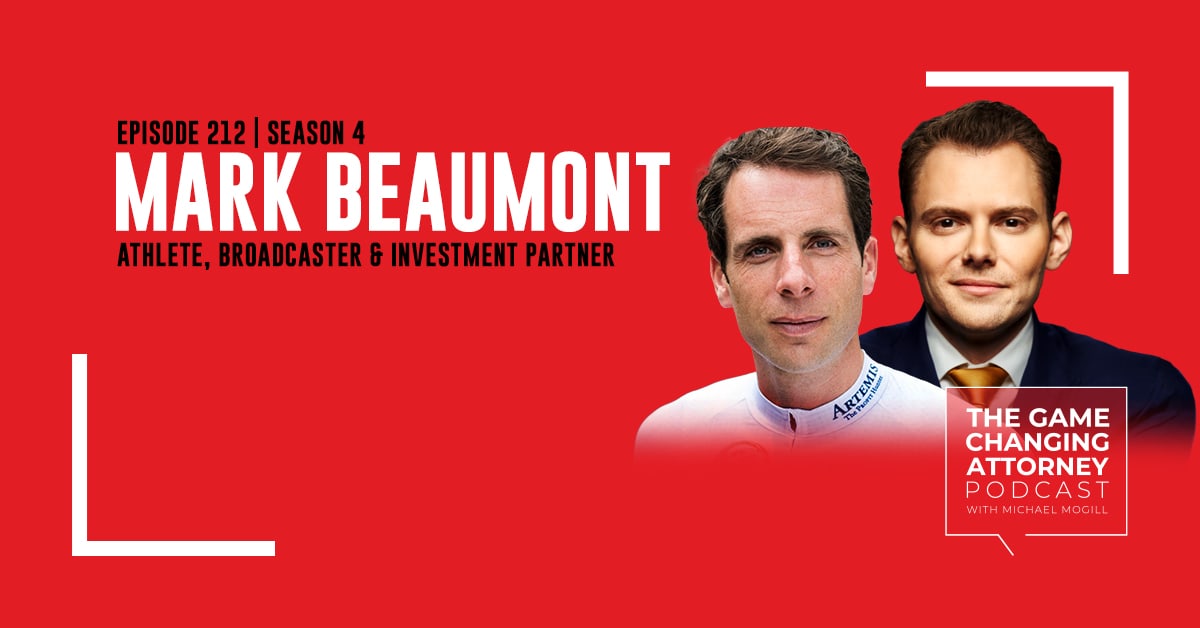
Listen & Subscribe
Show Notes:
The journey is its own reward. “Adventure sport for me has always been more about wild places and journeys than about performance. It’s never really been about beating anyone. It was always just about efficiently crossing landscapes. I’ve taken that to the extreme by breaking the world records for cycling the length of Africa, going from Alaska to Tierra Del Fuego, and climbing the highest mountain peaks in the Americas. It was always more about great journeys and wanderlust of travel than being a performance athlete.”
Set targets and plans to reach them. “I never doubted myself on my first circumnavigational ride because I did exactly what I set out to do. I said that I’d come home in 195 days, and I came home in 194. You feel like you left it all out there because it’s the hardest thing you’ve ever done, but you’ll never do better than what you set out to do. If you look at all my expeditions over the years, I’ve never tried to beat anyone. I’ve simply created targets and built plans around them, which creates leaps in performance. The second time I cycled around the world, I broke the world record by 37%, but I beat my target by 1.44%. So I knew that I left it all out there. Once you get to one horizon, you can see the next. But you can’t see the second horizon until you’ve claimed that first mountain.”
The power of momentum. “I think when you’re at your lowest stab on an expedition, you’re fighting not to get the finish line and the big dream of the record, but you’re fighting against stopping. Momentum is your greatest friend. The only thing worse than going slowly is stopping. And when you’re struggling to find momentum in your project, you’re facing the fear of failure. I’m not freakishly positive, but I am accountable.”
Average is the enemy. “I’m scared of merely existing. I don’t like the idea of just being a number, but that’s not an ego statement. I like making time count. I like doing significant things for my own sense of purpose and impact in the world with my friends, family, community, and work. I like to create stuff that really punctuates time. Life is about creating memories.”
Independence is a superpower. “ You’ve got to have a sense of independence to be able to do these things. I look at my kids, and the only thing I hope is that I can give them a sense of independence. It’s important to be able to fit in but maintain the independence of mind to do things you’re passionate about. That independence often gets squeezed out of kids at school, whereas it becomes your greatest superpower in adult life.”
You set the emotional pace of your team. “I’ve worked in all sorts of different dynamics, but when it came to my 80-day trip, I had an amazing team on the road. The thing I value the most is being utterly dependable when you turn the heat up. If I had stood on the start line in Paris and asked my team if they understood their jobs, they’d have said yes, but the reality is they didn’t. They got their pieces of the puzzle. I was the guy who had built, over two and a half decades, the perspective that this might just be possible. As the trip progressed, I caught the sense that the entire team had bought into my dream. They wanted this to happen, but they never could have come up with the dream. I didn’t have the skillsets that my team had, but they were bought into my dream and I was able to delegate the entire project to them. But I’ll never delegate the emotional leadership. If I smile, everyone smiles. If I look worried, my team gets worried. Because ultimately I’m the guy with the experience to put this together.”
The beauty of simplicity. “The wonderful thing about expedition riding is that it might be brutally hard, but it’s also life at its simplest. You have time to finish your thoughts, to really think deeply about the past, the future, your motivation. People always conflate time on your own with boredom or loneliness, yet I’ve never felt sorry for myself or lonely. The momentum of that journey is what gives me that thought process to keep going. There’s always something to think about. It seems like a vast amount of time, but I would put the challenge back to people listening. How distracted is your life? How many thoughts do you get to finish? I much prefer to have moments in my life where I do have that space. Ironically, I spent half my time on those expeditions wishing I was at home because it’s brutal and half my time at home wishing I was on an expedition for that simple ability to focus on one task.”
Shoot for the stars, but learn your trade. “I’m a planner. I’m meticulous about what I do. And in a weird way, I relish the struggle when hard things happen. I know that by trying to break world records, there are going to be days when things go wrong. I like having the knowledge that I can cope, but that’s very much a self-awareness piece. People approach me all the time and say they want to break their own world record. I tell them to shoot for the stars, but learn your trade. The ‘learn your trade’ bit is what most people miss. Go out there and live your greatest dream for sure, but learn your trade. Know yourself well enough that you can deal with pressures and setbacks. And you’ve got the basic toolkit to take on these things. That accountability piece is often missed, but that’s the most important bit.”
Life after a world record. “There’s always a period of uncertainty. When you finish a major project, the greatest emotion is relief. It’s such a weird, anticlimactic emotion. You want to sort of scream and jump up and down, but you just feel relief and then there’s a void. So whilst you’ve looked forward to sitting on the couch and watching Netflix all day, that’s actually wholly unfulfilling quite quickly because you’re so used to living life in the fifth gear. And the reality is that you can’t live life with that intensity. You can’t be maxed out all the time, constantly in world record-breaking mode. But when you know how to switch it on and off, the transition is not always easy. If you talk to any Olympian or high-performing athlete, there’s always a bit of an unknown the day after the big event. That sort of uncertainty allows you to build a sense of self and purpose outside of that event which had become your identity.”
Better to be relevant than busy. “Build the habit of being furiously busy and getting stuff done. A lot of people will say to build the habit of saying yes, but actually being relevant and productive in life is being very good at saying no. Being busy is such a boring currency. I would much prefer to not be busy, but be relevant.”
EPISODE RESOURCES & REFERENCES
Around the World in 80 Days (bike ride)
Scottish Highlands
Braveheart (movie)
Tierra Del Fuego
Ellen MacArthur
Dysentery
Around the World in 80 Days (book)
Around the World in 80 Days (movie)
Groundhog Day (movie)
David Peat
Alex Honnold
Connect with Michael
- Text directly at 404-531-7691
